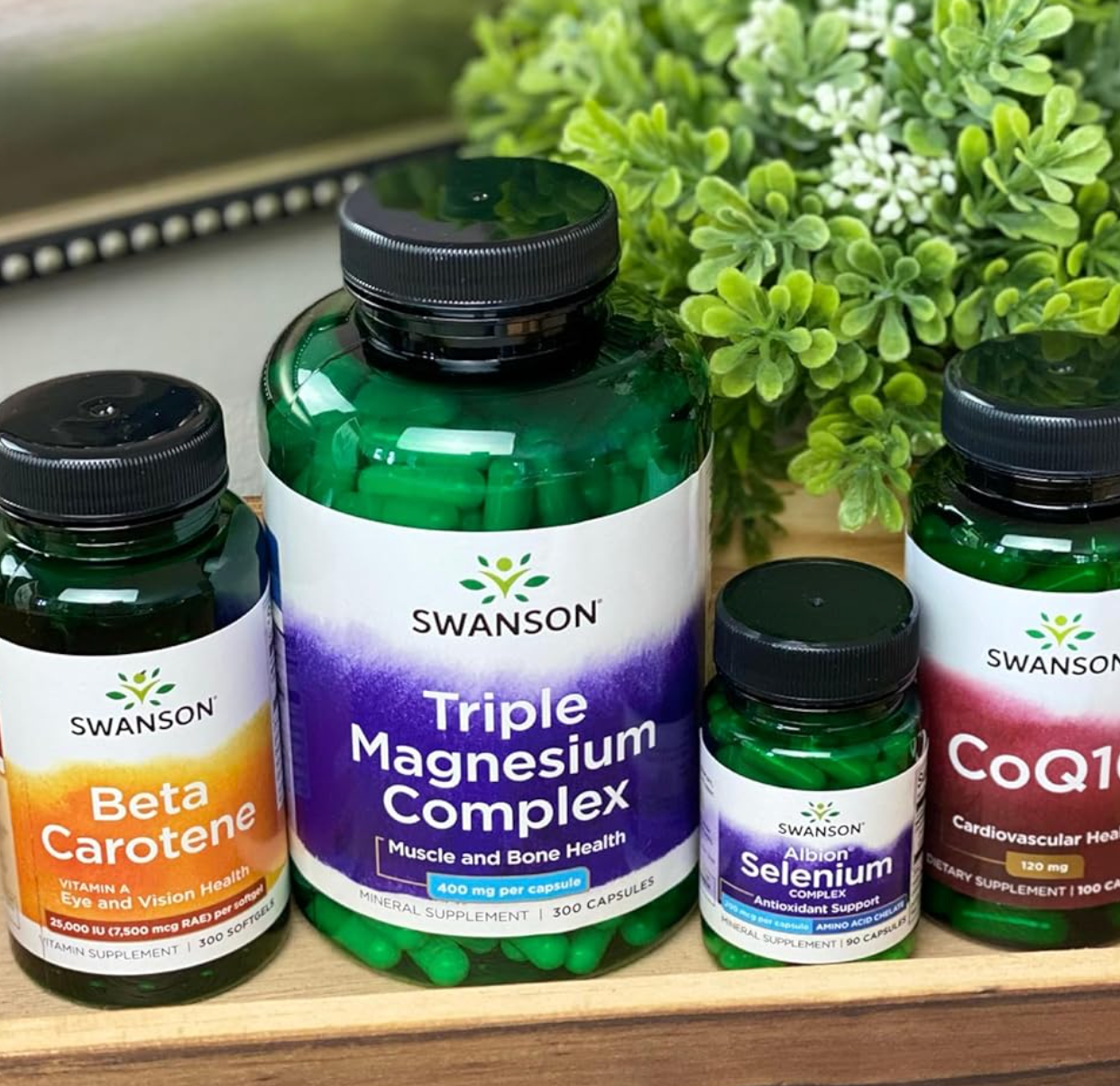
 Instagram
Instagram
Okra Water: Benefits, Risks and When to Drink It

Related products
Okra water, an emerging health trend globally, is a simple yet potent beverage made from the pods of the okra plant. This unique drink offers numerous potential health benefits and merits further exploration regarding its consumption guidelines and associated risks.
The Okra plant (Abelmoschus esculentus), known by several names, such as lady's fingers or gumbo, has been linked with myriad health advantages due to its essential vitamins, minerals, antioxidants, and dietary fibers. The traditional method involves soaking sliced okra pods in water overnight or boiling them until their slimy content leaches into the water —a process that makes these nutrients readily available for absorption when consumed.
Among the many purported benefits are blood sugar regulation relevant for diabetes management, improving heart health by lowering cholesterol levels, promoting digestion because of rich fiber content, and aiding weight loss through low-calorie counts while providing fullness between meals.
Expert opinions have highlighted more potential gains, including boosting immunity owing to high Vitamin C content, which works as an antioxidant fighting harmful free radicals and enhancing skin conditions given good amounts of Vitamin A necessary for producing new cells. Reducing visual impairment risks courtesy beta-carotene found within it – precursor vitamin A has a positive effect on eyesight and prevents cataracts, macular degeneration, and age-related eye diseases, among others.
Other notable attributes involve helping relieve constipation and enhance mood combat fatigue alongside acting as a natural detoxifier. According to research conducted by various medical institutions worldwide, diagramming the usefulness of such easy-to-make drinks in humans' daily diets.
However, just like any food item, certain drawbacks exist when consuming too much okra. Nutritionists caution against excessive intake of individuals prone to kidney stones consisting of oxalate substances that increase stone formation in kidneys. Furthermore, certain individuals with allergies might undergo minor or severe reactions post-consumption. In contrast, it consists of 'lectins' - proteins that obstruct the body's nutrient absorption ability, posing subtle challenges for those already dealing with malnutrition and deprived of various nutritional elements.
Despite these risks, the consensus among health professionals is that moderate consumption of okra water presents no significant danger. Many doctors and nutritionists agree it is a healthy alternative to popular sugary beverages. Considering the potential benefits mentioned above, the outlook remains positive for recommending places around the world.
What Is Okra Water?

A beverage derived from the plant Abelmoschus esculentus, commonly known as okra, constitutes Okra water. The soak or boil process of okra pods harnesses its beneficial properties into the liquid over time - a method that ends up infusing this drink with plenty of essential nutrients housed within these pods, such as vitamins A and C along with folic acid, magnesium, dietary fibre transforming it into a nutrient-dense concoction.
This unique concoction serves more than just quenching thirst; due to its numerous vital constituents, it functions proficiently within various health paradigms. From controlling blood glucose levels to reducing cholesterol, promoting digestion to moderating body weight, okra water offers numerous potential benefits when consumed regularly under expert supervision.
However, it's not entirely risk-free —excessive consumption might cause kidney stones owing to oxalates or nutrient malabsorption because of lectins found in Okras. Additionally, some individuals might experience allergic reactions post-consumption, prompting caution while introducing this new inclusion into one's diet.
As awareness about natural remedies spreads globally and people seek healthier alternatives amidst artificially sweetened beverages market dominance, interest in drinks like Okranater has witnessed a significant surge, thus paving the way for broader research and a deeper understanding of both advantages and disadvantages associated
Benefits Of Okra Water

- Regulates Blood Sugar Levels: Continuous studies have substantiated the role of okra water in maintaining blood sugar levels and helping manage diabetes effectively.
- Improves Heart Health: Okras' abundant fiber and antioxidants help lower bad cholesterol levels, thereby reducing the risk of heart disease.
- Promotes Digestion: It contains high amounts of dietary fibers that contribute to digestive health by facilitating better waste elimination from the body and preventing conditions such as constipation.
- Enhances Weight Loss Efforts: Being low on calories yet abundant with satiating fibers provides a feeling of fullness, thus aiding weight management initiatives by curbing unnecessary calorie intake between meals.
- Boosts Immunity: Enriched with Vitamin C, a powerful antioxidant crucial for strengthening immunity, it helps fight harmful free radicals.
- Skin Protection & Enhancement: A significant proportion of Vitamin A aids cellular regeneration, potentially improving overall skin condition.
- Eyesight Improvement: Beta-carotene elements within functions are precursor Vitamins that assist in preventing age-related macular degeneration eye disorders.
- Relieves Fatigue: The rich magnesium-potassium elements present facilitate recovery after strenuous activities, providing a boost in energy balance.
- Acts as a Natural Detoxifier: Studies suggest it possesses certain inherent properties that help detoxify the liver, thereby enhancing human body functioning.
- Mood Enhancer: Some research indicates drinking positively impacts mood, possibly through its enrichment of serotonin metabolites, which are known to affect moods and emotions in humans.
Risks Associated With Okra Water
Formation of Kidney Stones: Consuming okra, which contains compounds known as oxalates, has been associated with an increased risk for kidney stones development in individuals predisposed to this condition when consumed excessively.
Risk of Nutrient Malabsorption: Okras possess proteins termed 'lectins' that disrupt nutrient absorption within the body's digestive system. Thus, they might provoke malnutrition or exacerbate existing nutritional deficits in some people.
Potential for Allergic Reactions: Certain constituents present within okra water have been linked with allergic reactions, ranging from skin-related issues like rashes and hives to systemic symptoms such as swelling and shortness of breath, among others.
Bacterial Contamination: A report by the National Institute of Health (NIH) suggests that soaking raw pods overnight is conducive to bacterial growth if not stored under appropriate conditions.
Interference Medication, Especially Metformin: Research indicates that it compromises the body's usual processing drugs primarily used in diabetes management, altering their efficacy. Hence, consumption in conjunction with these medicines without supervision by healthcare professionals strongly.
Each potential risk necessitates caution and regular monitoring to ensure safe intake and minimal adverse effects. Therefore, it is always advisable to consult a doctor or nutritionist before incorporating any new elements into one's diet, particularly for someone already managing medical conditions and a prescribed medication regimen.
How To Prepare Okra Water
To prepare okra water effectively, the following steps are essential:
- Selection of Okras: Select fresh and tender green okra pods. If they are not organically grown, rinse them thoroughly to remove dirt or pesticide residues.
- Preparation: Slice off the tops and tails from each pod, then cut in half lengthwise
- Soaking Process: Place the prepared okra in a clean container, such as a glass jar jug. Pour cool, boiled room-temperature tap water over them, ensuring they are completely covered. Seal the cover and leave for about 24 hours at room temperature.
- Straining consumption After the period, strain the residue using a fine sieve colander. Discard solids and drink liquid on an empty stomach, preferably early morning.
Best results: Repeat the process daily with new set pieces, achieving a consistent supply of nutrient-rich beverages.
It's worth noting that the preparation method is relatively simple yet requires careful attention and proper storage to avoid bacterial contamination. A variation recipe might involve boiling instead of soaking. However, former stands are more popular due to the suggested benefits of leaching vital elements directly into water overnight. Practicing good hygiene vigilance throughout the procedure produces a wholesome, replenishing, natural health tonic.
When To Drink Okra Water
Consuming okra water is best done first thing in the morning when one's stomach is empty. Drinking this nutrient-dense concoction before meals facilitates improved uptake of its vital vitamins, minerals and antioxidants by the body system.
Medical research suggests that drinking okra water early in the day initiates several beneficial metabolic processes that contribute to maintaining optimal health throughout the day. For instance, it aids digestion by preparing the intestines for adequate food breakdown and absorption later during daytime eating activities.
However, if one is attempting to control blood sugar levels or manage weight effectively, one might find it helpful to consume some prior main meals, too. Not only does high fiber content provide a feeling of fullness and curb overeating, but slow-release carbohydrates also help regulate insulin response, thereby balancing glucose fluctuations.
While generally safe to drink at any given time during the day, considering individual needs, schedules are vital to remembering moderation key terms of consumption. As every person's nutritional requirements, unique frequency of intake should ideally be guided by a healthcare professional dietitian based on personal dietary goals and underlying medical conditions, if any.
Bottom line
Okra water is a nutrient-rich beverage made from soaking or boiling okra pods. It offers numerous health benefits, including blood sugar regulation, heart health improvement, immunity boost, and weight management assistance. However, it carries risks like potential kidney stone formation, nutrient malabsorption due to lectin presence, and allergic reactions. Drinking this on an empty stomach in the morning optimizes the absorption of its essential elements into the body system. Yet moderation remains key, with professional dietary consultation advised for optimal individual usage.
Frequently Asked Questions
What is the best time to drink okra water?
The best time to drink okra water is generally in the morning on an empty stomach.
Is okra water risky?
Okra water carries certain risks, such as promoting kidney stone formation and causing nutrient malabsorption due to lectins' presence.
What happens when you drink okra water every morning?
Drinking okra water every morning potentially aids digestion, regulates blood sugar levels, enhances mood, and improves overall wellness, thanks to its essential nutrients.
Does okra have side effects?
Yes, side effects of consuming too much okra include the potential for developing kidney stones due to oxalate concentration, food allergies manifested by symptoms like itching or swelling, and nutrient malabsorption caused by 'lectins' present within the plant.
Who should avoid okra?
Individuals with a history of oxalate-type kidney stone attacks, gastrointestinal issues, extreme dietary restrictions, and those allergic to previously mentioned substances are important to avoid consumption.
Can you drink okra water while on your period?
When consumed in moderation during the menstrual cycle, it helps replenish vital nutrients lost through bleeding. Additionally, being rich in potassium and magnesium, it works as a natural muscle relaxant, alleviating period cramps. However, it is advisable to consult a doctor before incorporating it into a regular diet, particularly for someone with known health conditions.

















 Rated Excellent by 26,523+ Reviews
Rated Excellent by 26,523+ Reviews